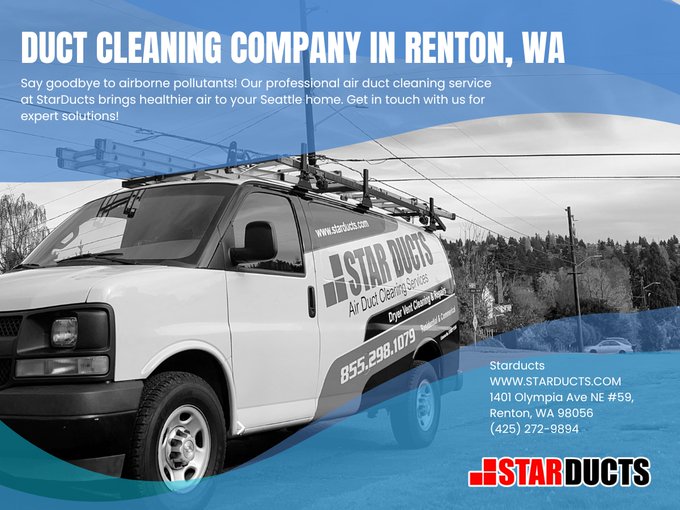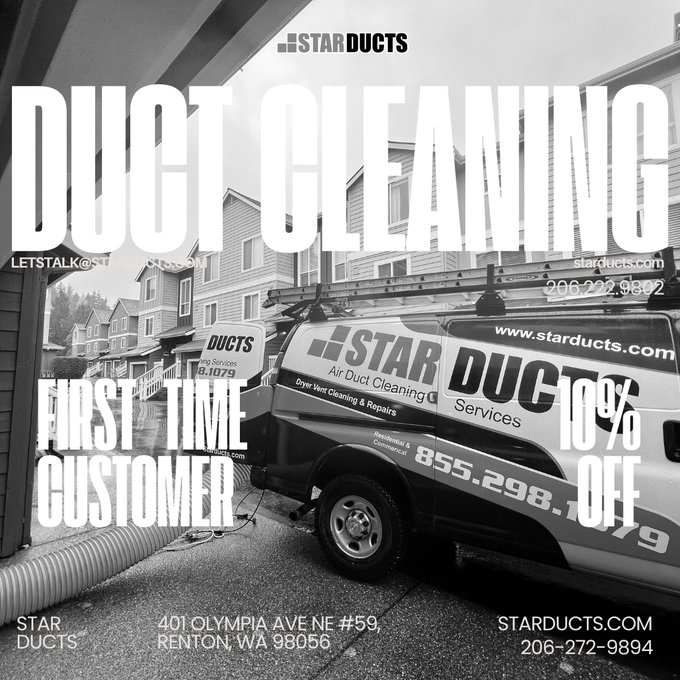Will Duct Cleaning Improve Indoor Air Quality? A Comprehensive Guide
Indoor air quality is something that many of Duct Cleaning us take for granted. We breathe in the air around us without giving it much thought, but the truth is that the quality of that air can significantly impact our health and well-being. This brings us to an important question: Will duct cleaning improve indoor air quality? In this comprehensive guide, we'll explore the ins and outs of duct cleaning, its effects on indoor air quality, the methods involved, potential drawbacks, and much more.
What Is Duct Cleaning?
Duct cleaning refers to the process of removing dust, debris, mold, and other contaminants from your home's heating and cooling system's ductwork. Over time, these ducts can accumulate a surprising amount of dirt and allergens that can circulate throughout your home. The process typically involves:
- Inspection: A technician examines your ductwork for any signs of buildup or damage.
- Cleaning: Using specialized tools like rotary brushes and vacuum systems to remove built-up debris.
- Sanitization: Some services apply antimicrobial agents to inhibit future growth of mold or bacteria.
Why Is Duct Cleaning Important?
Many homeowners wonder if duct cleaning is really necessary. The answer often lies in understanding what happens when ducts are ignored:
- Allergen Accumulation: Dust mites, pollen, pet dander, and other allergens can collect in your ducts.
- Poor Airflow: Blocked ducts can restrict airflow in your HVAC system, leading to inefficiencies.
- Odors: Unpleasant smells from accumulated debris can permeate your home.
In short, regular duct cleaning can help maintain a healthy living environment.
Will Duct Cleaning Improve Indoor Air Quality?
Yes! One of the primary benefits of duct cleaning is its potential to improve indoor air quality (IAQ). By removing contaminants from your ductwork:
- Fewer Allergens: Cleaner ducts mean fewer allergens circulating in the air you breathe.
- Reduced Respiratory Issues: Improved IAQ can alleviate symptoms for those with asthma or allergies.
- Elimination of Odors: Regular duct cleaning can help eliminate persistent odors caused by mold or decaying particles.
How Does Duct Cleaning Work?
The process usually involves professional-grade equipment designed for thorough cleaning. Here's how it works:
- Preparation: Technicians prepare by sealing vents to prevent dust from escaping into living areas.
- Vacuuming: A powerful vacuum is attached to the main trunk line to capture loosened debris.
- Brushing: Brushes are introduced into the ducts to dislodge stubborn dirt.
- Final Inspection: After cleaning, technicians inspect the ducts again to ensure all contaminants have been removed.
Does Air Duct Cleaning Really Make a Difference?
Absolutely! While some may argue that air duct cleaning is unnecessary unless there’s visible contamination or specific issues like mold growth, most homeowners report noticeable improvement in their home's air quality post-cleaning.
The Most Effective Duct Cleaning Methods
When it comes down to effective methods for duct cleaning, several techniques come into play:
- Source Removal Method: This method uses high-vacuum suction combined with mechanical agitation (brushes) for deep cleaning.
- Chemical Biocides Application: Sometimes used after physical cleaning to kill bacteria or fungi; however, it should be applied cautiously due to potential health risks.
- Ultrasonic Duct Cleaning: Utilizes high-frequency sound waves for dislodging contaminants without needing extensive dismantling.
What Are the Drawbacks of Duct Cleaning?
Despite its benefits, some drawbacks exist regarding duct cleaning:
- Cost Considerations: Depending on where you live—like Renton WA—the cost averages between $300-$500 per service visit.
- Potential Damage Risks: If not done correctly by professionals, there could be damage to your ductwork leading to costly repairs.
- Limited Frequency Needs: Not all homes require frequent cleanings; over-cleaning can lead to unnecessary expenses.
FAQs About Duct Cleaning
1. What does duct cleaning do?
Duct cleaning removes dust and allergens from your HVAC system's ducts and improves indoor air quality.
2. Is air duct cleaning loud?
While some noise will occur during the process due to machinery used for vacuuming and agitating debris—but most companies take care not to disturb residents excessively.
3. Does duct cleaning help with odor?
Yes! It helps eliminate unpleasant odors caused by mold or accumulated debris trapped within ducts.
4. Is duct cleaning really worth it?
For many households—especially those with allergy sufferers—duct cleaning proves beneficial by improving indoor air quality.
5. What type of air duct cleaning is best?
The source removal method paired with qualified professionals usually yields the best results for thorough cleanliness.
6. What are common signs my ducts need attention?
If you’re experiencing increased allergy symptoms indoors, odd smells coming from vents, visible dust around vents—it may be time for a professional inspection!
Conclusion: Clean Ducts Lead To Happy Homes
In conclusion, investing in regular duct cleaning services can substantially enhance indoor air quality while keeping allergens at bay! From understanding what does duct cleaning do? To recognizing its impact on respiratory health—this comprehensive guide has aimed at demystifying everything related to this crucial home maintenance task.
So if you’re still wondering whether or not “Will Duct Cleaning Improve Indoor Air Quality?” remember: clean ducts contribute greatly towards healthier living spaces!
Whether you're considering hiring professionals for this service or tackling things yourself—make informed choices about what’s right for you! Your lungs will thank you!
This article aims at providing comprehensive insights into how vital it is for homeowners’ health and comfort—a clear understanding always promotes better decision-making when it comes down choosing if/when should one consider opting out services like these regularly!

